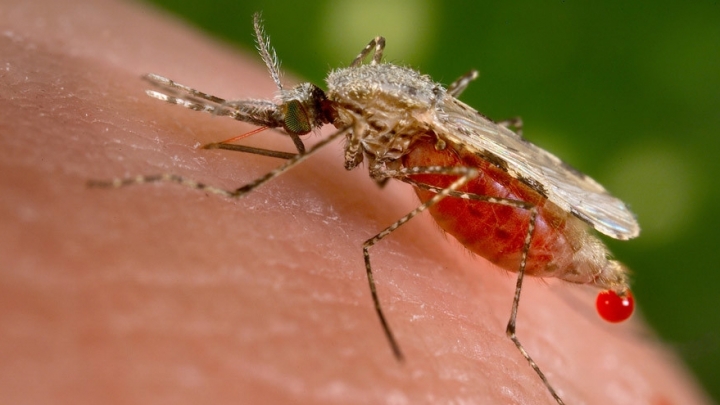World Health Organization no longer considers Zika a global health emergency

The Zika virus that has spread to more than 50 countries is no longer considered an international public health emergency, the World Health Organization declared Friday. But the change in designation does not represent a downgrading of Zika's importance, officials said, according to The Salem News.
The WHO labeled Zika an international emergency in February primarily to understand what was causing the "extraordinary clustering" of microcephaly cases in Brazil, the epicenter of the outbreak, said David Heymann, who chairs the expert panel that made the recommendation. When the emergency was declared, he said, researchers had not yet proven that the mosquito-borne virus causes the severe birth defect characterized by an abnormally small head and underdeveloped brain.
Studies have since established the link between Zika and microcephaly. Now, the best way to tackle the virus and its serious complications is for the WHO to manage "this significant and enduring public health challenge" within the organization, Heymann said. That will allow for a more sustained focus, with more dedicated resources and expertise, he added.
"This represents an escalation into a major activity within WHO," he said at a press conference in Geneva. "If anything, it's escalated in importance."
Peter Salama, a senior WHO official, said Zika represents a set of long-term issues, including neurological complications in children as well as adults, family planning and maternal reproductive health, that will require a comprehensive research agenda and sustained financing over many years.
Yet many public health officials and experts are worried that this technical distinction may be lost and end up sending the wrong message about Zika - even as new cases seem to be emerging in Asia.
The virus, which is primarily transmitted by the Aedes aegypti mosquito, can be passed from a pregnant women to her fetus and cause a host of grave birth defects beyond microcephaly. These problems are collectively known as congenital Zika syndrome. The degree of fetal risk when a pregnant woman has been infected is still unknown.
The Centers for Disease Control and Prevention has been leading the Zika response in the United States and playing a major surveillance and research role in Brazil and other countries. It stressed Friday that despite the "technical declaration" by the WHO, Zika infection continues to be a serious threat to pregnant women, babies born to pregnant women with Zika and their families.
"There is still much to learn about the disease," the CDC statement said. "We need to learn more about Zika and its associated complications of microcephaly and other brain abnormalities, such as when Zika infection poses highest risk to a fetus during pregnancy and the magnitude of that risk. It remains crucially important that pregnant women avoid traveling to areas with local transmission of Zika, because of the devastating complications that can occur in fetuses that become infected during pregnancy."
The CDC said there is also urgent need to develop improved diagnostics and vaccines that can prevent infection and spread of the disease. Public health experts and clinicians need to better understand the risk of neurological complications in affected infants, children and adults, the risks of mosquito-borne and sexual transmission of Zika and how best to prevent Zika infection, the agency said.
The WHO's expert panel extensively discussed how the change in designation would be interpreted and whether that would make it harder to raise money for the international response, Heymann said.
In the end, Salama said, the organization hopes its donors will recognize that Zika is here to stay and that the world will need to deal with it for years to come. Zika and microcephaly will surface wherever there are vectors that can transmit the disease, the experts said.
Asked why the WHO did not drop the emergency designation in April when the CDC concluded that the virus causes microcephaly, Heymann said there were still outstanding worries about the upcoming Summer Olympics in Rio de Janeiro and "understanding what the risks were," he said.
The experts also addressed the continuing mystery about the relatively few cases of microcephaly outside of Brazil. Most of the 2,300 confirmed cases of microcephaly are in that country, with a few dozen also reported in Colombia, where there was a large Zika outbreak.
"The number of confirmed cases [of microcephaly] is less than what we did imagine," Salama said at the press conference. "But we know it's probably not the whole story." He cited biases in how cases were reported that could mean a "significant underestimate" of the toll worldwide.
So far, 28 countries have reported cases of microcephaly. Nineteen have reported adult cases of Guillain-Barré syndrome, which can cause paralysis, "so even though Brazil tops the list, this is not confined to Brazil nor will it be in the future," Salama said.
Researchers have been investigating whether other factors could explain Zika's damage in Brazil's hardest-hit northeast region, including genetic factors, environmental contaminants and co-infections.
A presentation by Brazilian officials to the WHO's Zika expert panel has not yet found a "co-factor" to explain why Zika is causing so much more microcephaly in Brazil, Heymann said. However, "these studies can't be done overnight."
HEALTH
- Scientists develop drug they hope could lead to cure for HIV, Aids
- Mutation in Ebola virus makes epidemic in West Africa even more deadly
- Study: Smoking causes extensive damage to DNA
- Tehran shuts schools as thick smog is linked to hundreds of deaths
- New exoplanet found orbiting a star 33 light years away from Earth
- UN calls for urgent action to protect young women from HIV/Aids in Africa